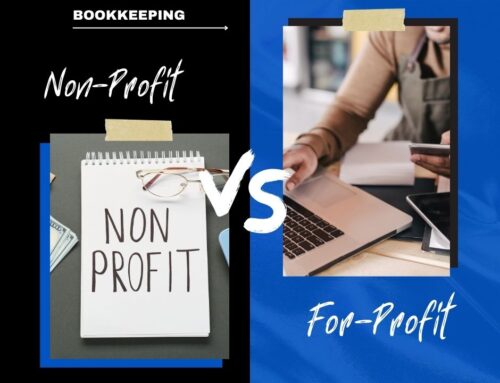Closing out your books before tax season will be officially completed once a year, but there’s a variety of activities to do throughout the year to stay on top of it. Laura Glennon, founder of Navitance, discusses how to ensure you’re ready to go when tax season arrives. Listen or read more to find out about closing out your books for taxes.
John Maher: Hi, I’m John Maher. I’m here today with Laura Glennon, founder of Navitance, which provides a full array of financial, accounting, bookkeeping, outsourced CFO consulting, and financial restructuring advisory services for nonprofit organizations, startups and established businesses. Welcome, Laura.
Laura Glennon: Thank you, John.
John: Laura, today we’re talking about closing out the books for taxes. What are the most important tax considerations when closing out the books at the end of the year?
Laura: Well, you want to make sure that your data is crystal clear and clean. What I mean by that is … the file that ultimately goes off to the tax accountant to prepare the corporate tax return, we want to make sure that there aren’t mistakes. We want to make sure that the accounts are all reconciled. The problem with not reconciling cash accounts or credit card accounts is there could be duplications or omissions. If there’s duplications, that means that there is something in addition to what needs to be there. If it’s an expense, then now you’ve doubled the expense.
John: Now you’re over reporting your expenses?
Laura: Yes. And so it’s inaccurate. You want to make sure that all duplications and omissions are searched for. Get rid of the duplications and, of course, enter the omissions so that your data is accurate. It should tie to your statements.
When to Close Out Your Books
John: Do you need to close out the books by the end of December, or do you have until say, January 15th or some other date to get that done?
Laura: If you’re on a calendar year basis, you have to wait for December to end. I’ve had clients in the past who were very anxious and pressuring and wanting us to finish the books, and we can’t because the month has to end. Depending on if you’re outsourcing your bookkeeping to a firm like Navitance, or if you’re doing it in-house — if you’re doing it in-house and you have the resources — then sometime in January you might be able to close out those books.
You want to make sure everything looks really good, nothing is sitting in ‘ask my accountant’ which is a typical bucket where people put things that they don’t know what to do with. If you’ve got fixed assets or intangible assets, you want to make sure that you’ve updated your net asset roll forward schedules and your amortization schedules. Depending on the complexity of the company, that closeout period could take longer than others.
If it’s a straightforward cash business, then you’re going to reconcile your accounts, make sure nothing is sitting in like ‘miscellaneous expense’ or ‘ask my accountant’, everything looks good, everything makes sense. Then you would send it off to your tax accountant for that person to prepare the return.
How Often Should Accounts be Reconciled?
John: This all seems like a really good reason to make sure that you’re reconciling all of your accounts on a monthly basis all throughout the year as well. Because I would imagine that if you end up on January 1st, looking back at the year and saying, “Now, I have to reconcile the last 12 months of income and expenses and things like that,” that’s going to take a long time.
Laura: It is. Some companies that are just starting out don’t realize the importance of keeping up with it. Often you’ve heard about the ‘shoe box’ kind of a client that’ll come in with receipts overflowing and expecting someone to put that together. Certainly that’s possible; people do that all the time. It’s very stressful. Why not just keep up with it during the year and then you’re in much better shape early in January.
End of Year Spending
John: Okay. Should small businesses be doing things like spending on equipment like new computers or maybe doing some extra spending on marketing at the end of the year to take advantage of getting a tax benefit, or what do you recommend?
Laura: Well, absolutely. Depending on their cash flow and their situation and the priority of those purchases, if there’s lots of extra cash flow, and you’re looking at a hefty tax bill based on your net income, then reducing it would be a good idea. Spending money on marketing, a new website, buying a new vehicle for the fleet, something like that, it makes good sense.
John: Again, it goes back to making sure that you’re up-to-date on what your financials look like as you’re approaching the end of the year, because you won’t know whether or not you have that extra cash flow if you haven’t been paying attention all along.
Laura: That’s right. That’s right. Yes. It’s really important to keep up with your books, and to not only keep up with them, but to then read the financial statements that your bookkeeper should be giving you. Or, if you have an in-house person or if you have an outsourced provider, typically a controller would provide those for you. That’s the balance sheet, the income statement and the statement of cash flows. Those three really tell you the whole picture of what’s going on with the business.
John: All right. That’s great information, Laura. Thanks again for speaking with me today.
Laura: Thank you.
John: For more information, visit the Navitance’s website, at navitance.com, or call 978-809-3282.




